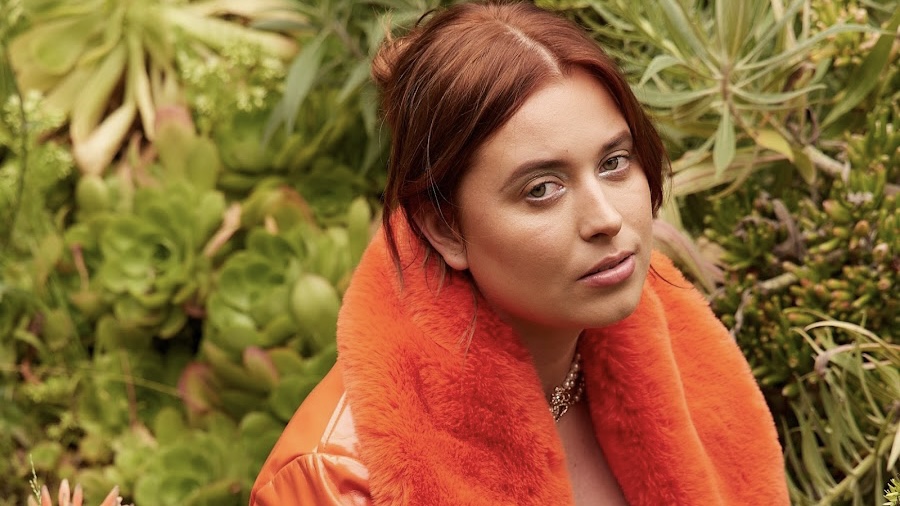
Since the release of her new album “One For Jackie” on Oct. 27, alternative artist Rett Madison (she/they) has risen higher than ever. On Nov. 8, Madison performed her new song “Flea Market” on “Late Night with Seth Meyers,” making her late-night television debut. From there, she headed straight to the Lower East Side for her headline show at the Mercury Lounge.
“It all kind of moved very quickly,” Madison said. “There wasn’t a lot of time to ruminate on much, which I think for somebody with my personality type, was probably better.”
At 26, Madison’s already impressive resume includes singing backup for Lorde and Kate Nash, as well as opening for Elle King, Melissa Ethridge, and Sheryl Crow. The singer-songwriter signed with Warner Records last March. Their latest album release and subsequent television appearance have vaulted them into the national spotlight—but their music has continued to explore vulnerable themes.
Adorned in a pink sequin gown embellished with feathers, Madison smiled widely out at the packed, intimate Mercury Lounge. They joked to the buzzing crowd about the first show they played in New York five years ago, which had only sold four tickets. As purple stage lights poured out onto a room full of adoring fans, it was clear Madison’s popularity had grown exponentially.
“I just feel really grateful and lucky that people have been connected with the music and that there’s finally an audience that I can share my songs with,” they said.
Madison addressed the crowd with profound openness and emotional generosity throughout the night as she performed new songs from “One For Jackie.” The album is a poignant tribute to her mom Jaqueline after Madison lost her to suicide in 2019. Writing as a means of processing was a clear goal in the creation of “One For Jackie.” Despite the painful difficulties that came with writing from a place of grief, the experience proved to be powerfully healing for Madison.
“It felt quite natural to write these songs, because it’s how I’ve been used to processing hard emotions earlier in my life. I would definitely say writing the record, and especially recording the record was deeply cathartic for me,” Madison said.
During the recording process, Madison surrounded herself with musicians who were also familiar with grief. They held space for one another throughout the recording of “One For Jackie,” transforming the experience into an opportunity for connection.
“It felt very healing just to be in the studio with other musicians and like-minded people who had understood or experienced grief in their own lives as well,” they said. “All of us meeting together to make this album about my own journey grieving my mom, but also largely in tribute to her and her life, was a very, very healing time.”
Madison is no stranger to infusing her experiences into songwriting. Growing up in West Virginia, they were encouraged by their parents to participate in voice and piano lessons. As a preteen, she found herself gravitating towards songwriting as a form of therapy.
“Instead of keeping a diary like a lot of kids would do, my diary was writing songs,” Madison said.
Growing up in Appalachia greatly influenced certain themes in Madison’s new album. Track 10, “One for Jackie, One for Crystal,” is her take on an Appalachian murder ballad directed at a man who got away with abusing Madison’s mom when she was just a child. Although the song is powered by rageful vocals (“Look here, you son of a bitch / I know the shame that those girls hid”), it holds at its center a deep love and support for Madison’s mom in a time of helplessness. “One For Jackie” is a masterclass in both storytelling as well as personal reclamation.
“I think the biggest influence from my upbringing in West Virginia and in Appalachia is the tradition of storytelling,” Madison said. “I don’t always have elements of country music or folk music present sonically in my songs, but I think that tradition from Appalachia of storytelling is very much there at the center of it — even if I lean into different genres or styles musically.”
In “One For Jackie,” Madison advocates for herself as much as her mom. She unpacks their distinct traumas, examining the way her mom’s experiences influenced her own upbringing. Madison is careful not to erase the nuance in their relationship, instead choosing to look at the entire, truest picture. When writing “One for Jackie, One for Crystal,” Madison gives a younger version of her mom a voice while reflecting on the way Jaqueline’s traumas impacted her adult life.
“I feel like if my mom hadn’t been abused as a little girl, and had been believed and had a safe person to talk to, that my experience being raised by her would have been quite different, less complicated, and even safer for me,” Madison said. “I want to advocate for my mom and her truth. And also, I’m genuinely pissed off that somebody hurt my mom. Because trauma ripples through families, right? It doesn’t always just end with the first person that’s hurt.”
Madison also pays tribute to the charming idiosyncrasies that made Jaqueline who she was. The third track “Flea Market” is an ode to Jaqueline’s love of leopard print, centered around a shirt at the Silverlake Flea, which Madison knew her mom would have bought. The song captures the sharp sense of pain you feel when you notice an object intrinsically tied to someone who has passed.
“I’m so pathetic I almost bought the ugliest shirt I ever saw / ‘Cause you would have loved it, you would have worn it,” she sings in “Flea Market.” The shirt sparks a cascade of memories about Jaqueline, giving the listener insight into the bright, distinct facets of her personality.
About halfway through the Mercury Lounge show, Madison invited two fans on stage for an impromptu tarot reading, which effortlessly segued into the song “Fortune Teller.” The smooth and undeniably catchy ninth track on “One For Jackie” is about Madison’s experiences visiting psychics in the wake of her mom’s passing. Spirituality helped her find a level of closure while simultaneously heightening her connection to her mom.
“After going through a period of feeling much more cynical and more closed off to really anything spiritual and just in deep grief, I started to come to a place or mindset with myself where I was seeking answers.”
The resiliency that Madison has shown on “One For Jackie” is also reflected in her song “God Is a Woman,” released in 2018, which is centered around Madison’s journey to accepting her identity in the face of religious trauma. During her show at the Mercury Lounge, Madison joked that the night was divided into songs about grief and songs about queerness. Both sections, however, maintained a level of strength that brought many in the crowd to the point of tears.
“I think it’s very important anytime we can show young queer people that there’s hope, and that you can have a vibrant life where you can love yourself, and other people will accept and love you,” they said. “I definitely wrote those songs and hoped that it would reach younger queer folks and help them feel less alone.”
Despite the heaviness of her songs, Madison’s powerful stage presence never wavered throughout the night. The performer joked freely with the crowd while delivering stellar vocal renditions time and again. From the first song, they captured the attention of the audience and did not let it go.
Album closer “Kiki” is a gentle, stripped-down letter in song form. While the opening track “Jaqueline” is a letter from Madison to her mom, “Kiki” is what Madison imagines her mom would have wanted to say to her; its title is the nickname Madison’s mom used to call her as a child.
“I sound like a hippie,” Madison joked, “but the song just sort of came to me. And it was very cathartic. I was crying while I wrote it the whole time. It felt very much like I was connected to my mom and her spirit in that moment. It felt like if she could speak to me now, it felt very true to what she would say to me if she could.”
Heartfelt lines from “Kiki,” such as “I hear you talk to me / When you think you’re on your own / But you’re not alone,” are accompanied by acoustic guitar and soft vocals by Sam Ervin Beam, better known as Iron & Wine, who recorded his vocals out of his own studio.
“I think his voice fits perfectly. He has this very beautiful, timeless, almost omniscient vocal quality at times,” Madison said. “Hearing him sing it makes me quite emotional because I’m just a huge fan of his, but also he brings such a depth to the song that I couldn’t have imagined.”
Through both her songwriting and powerful live performances, Madison’s resiliency will undoubtedly act as a beacon of hope to others in grief. “One For Jackie” is the result of Madison’s willingness to turn her pain into something beautiful — an art piece that reminds others they are not alone. Through tremendous grief, self-reflection, and perseverance, Madison has created an album with the ability to heal as much as it hurts.

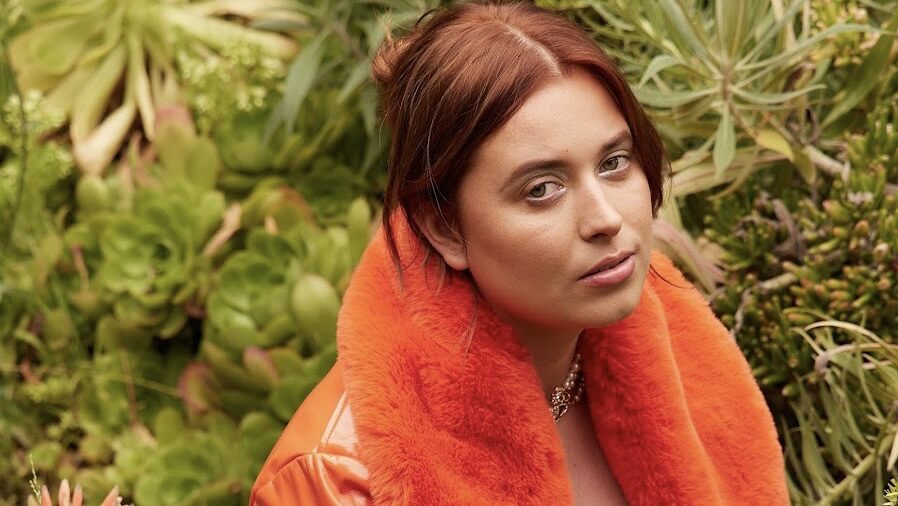
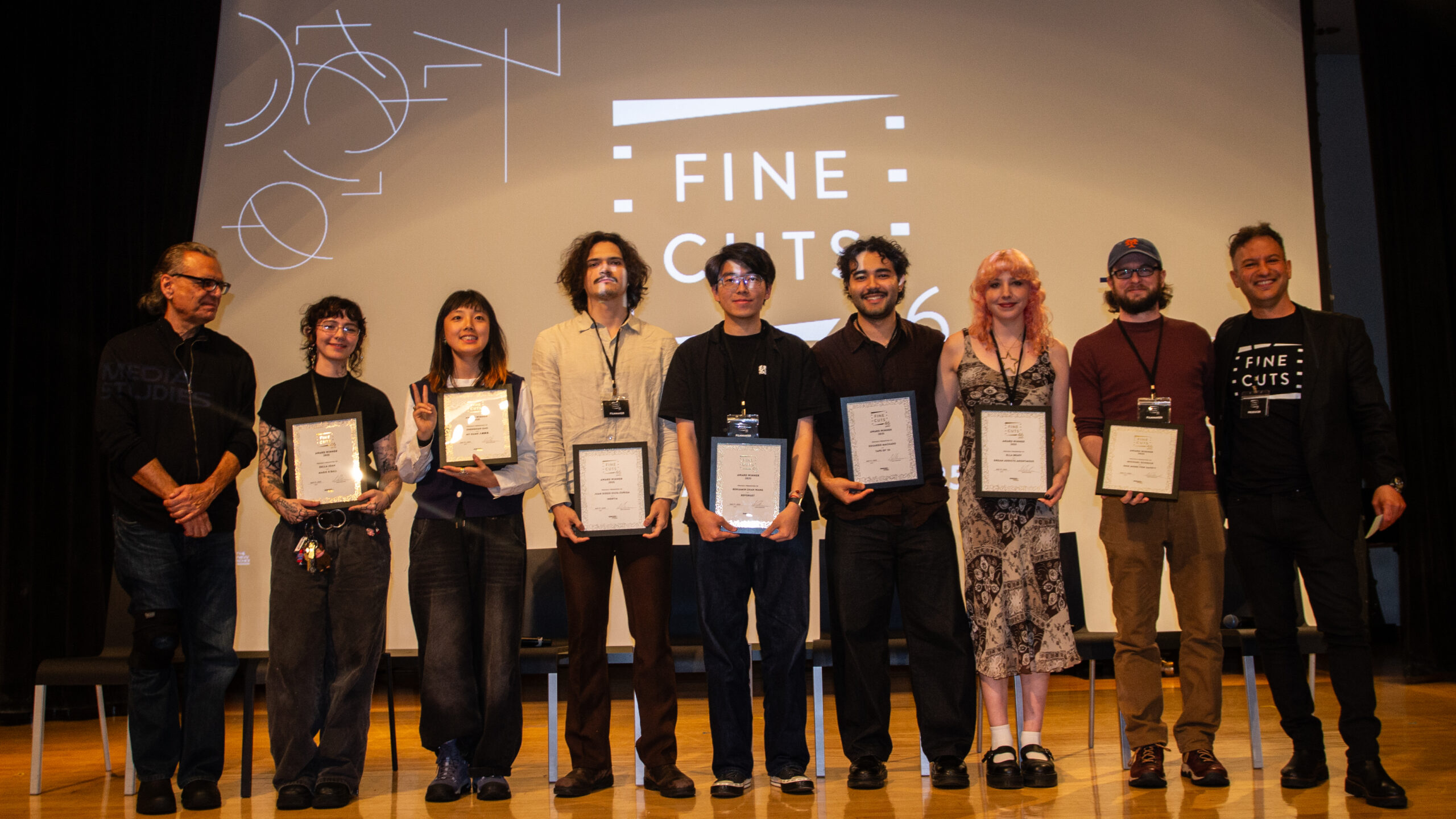
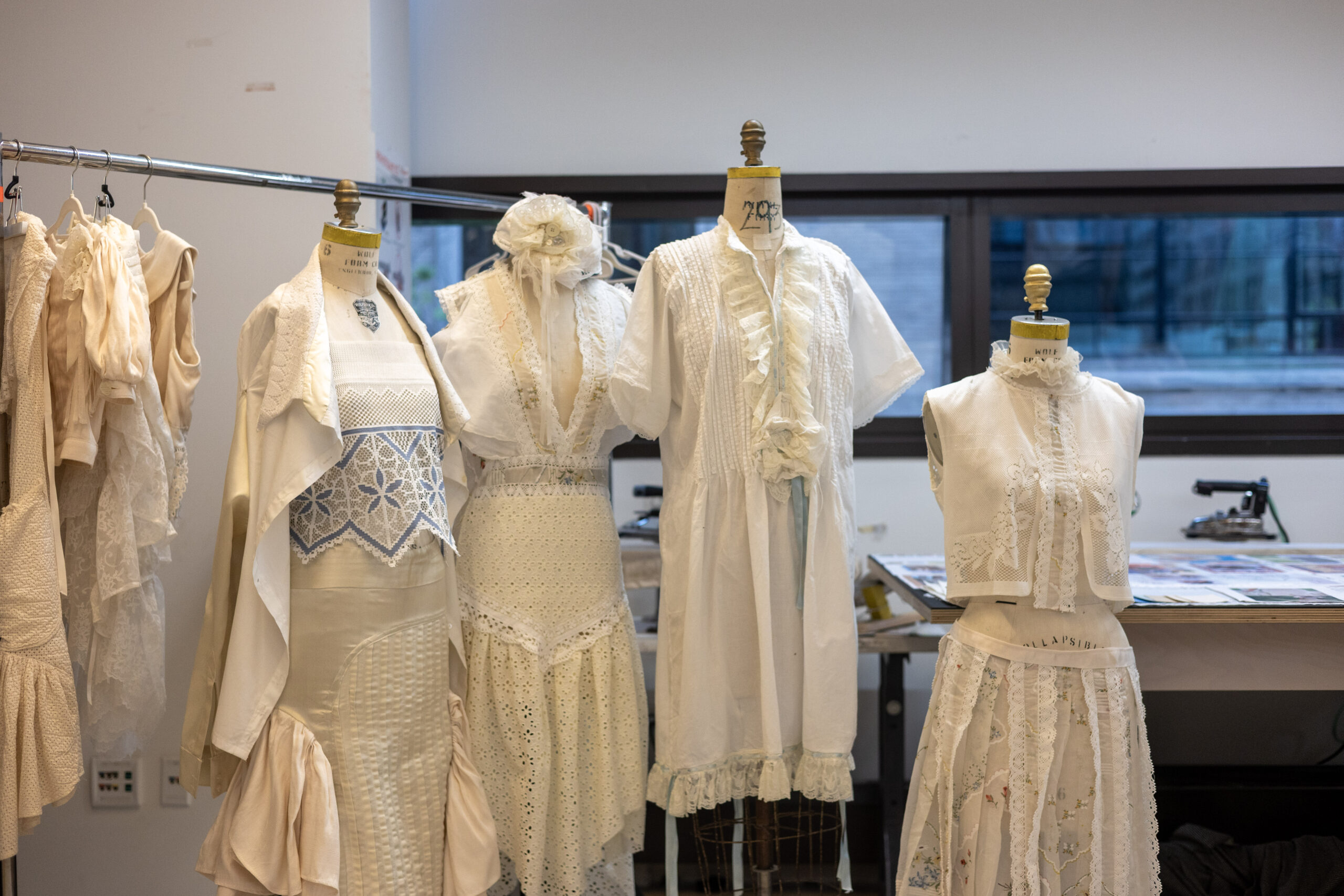

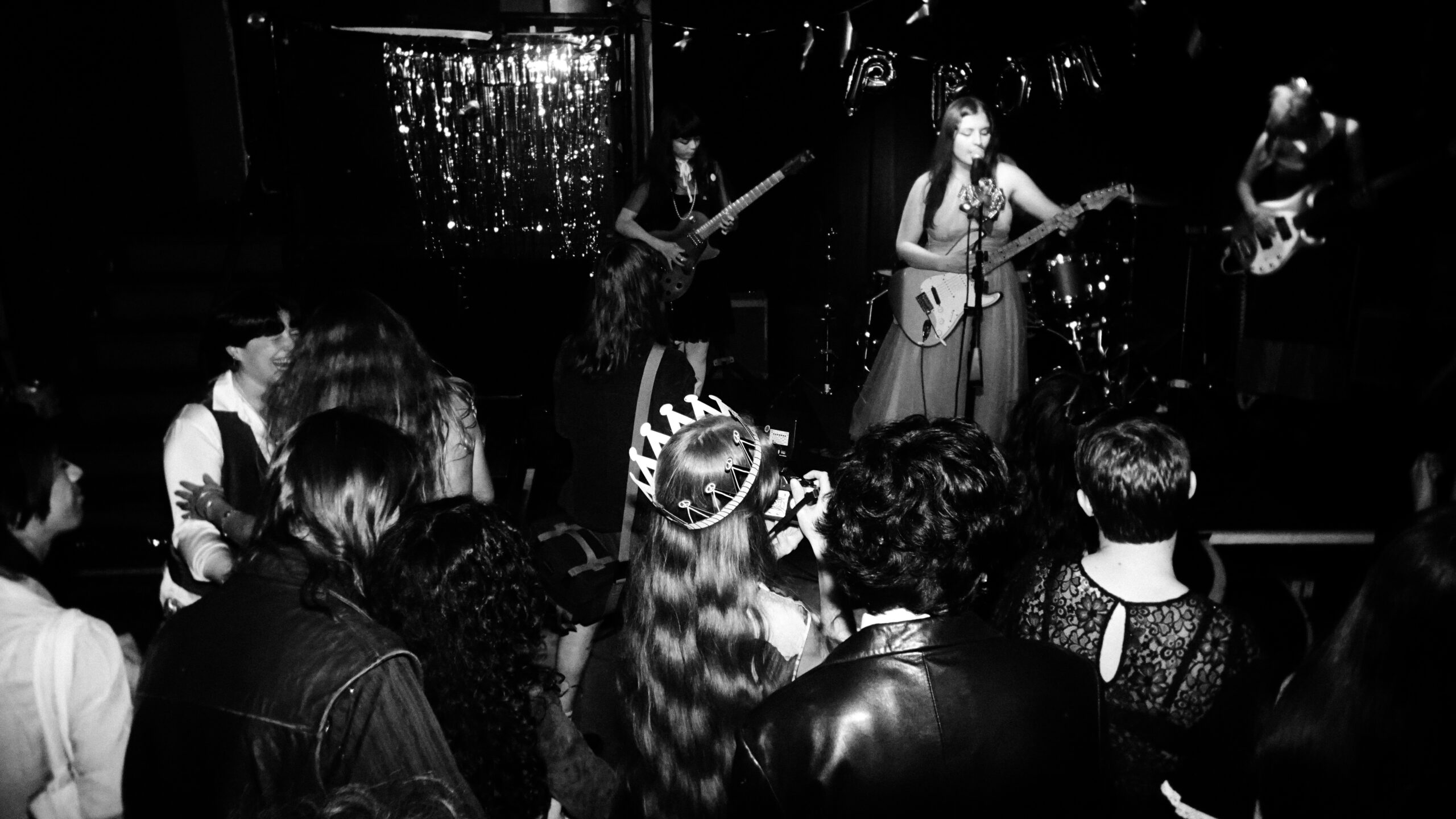
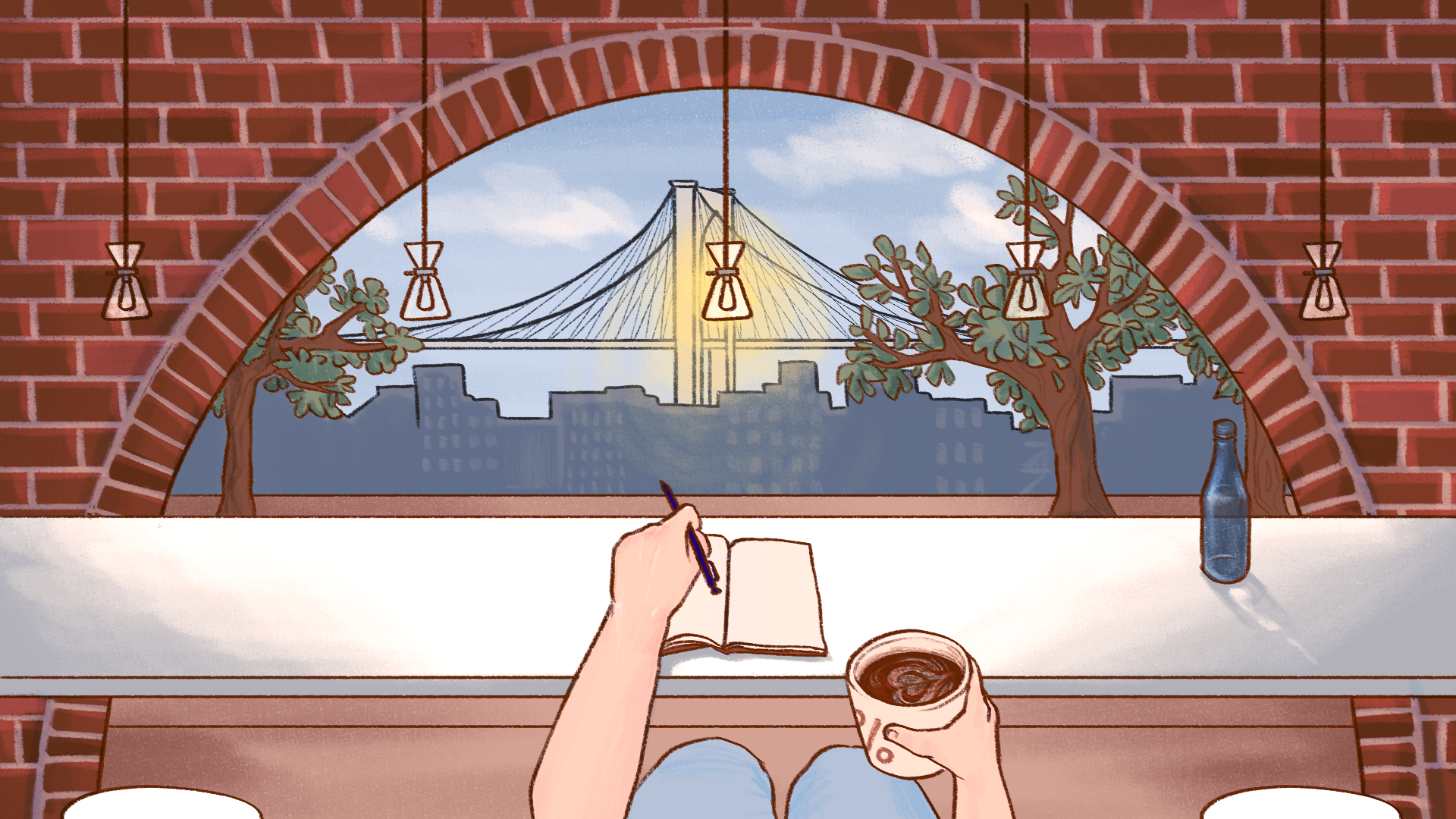

Leave a Reply